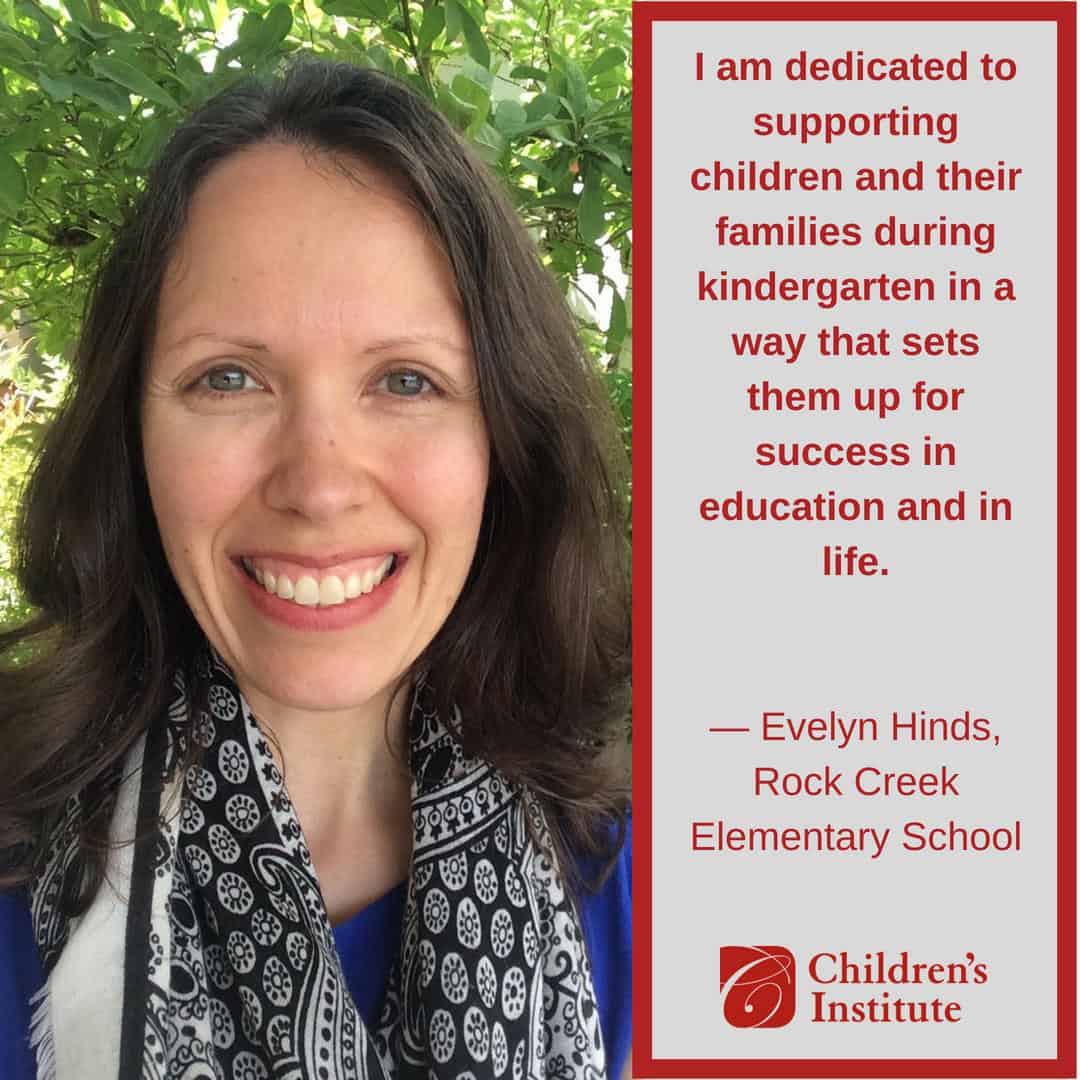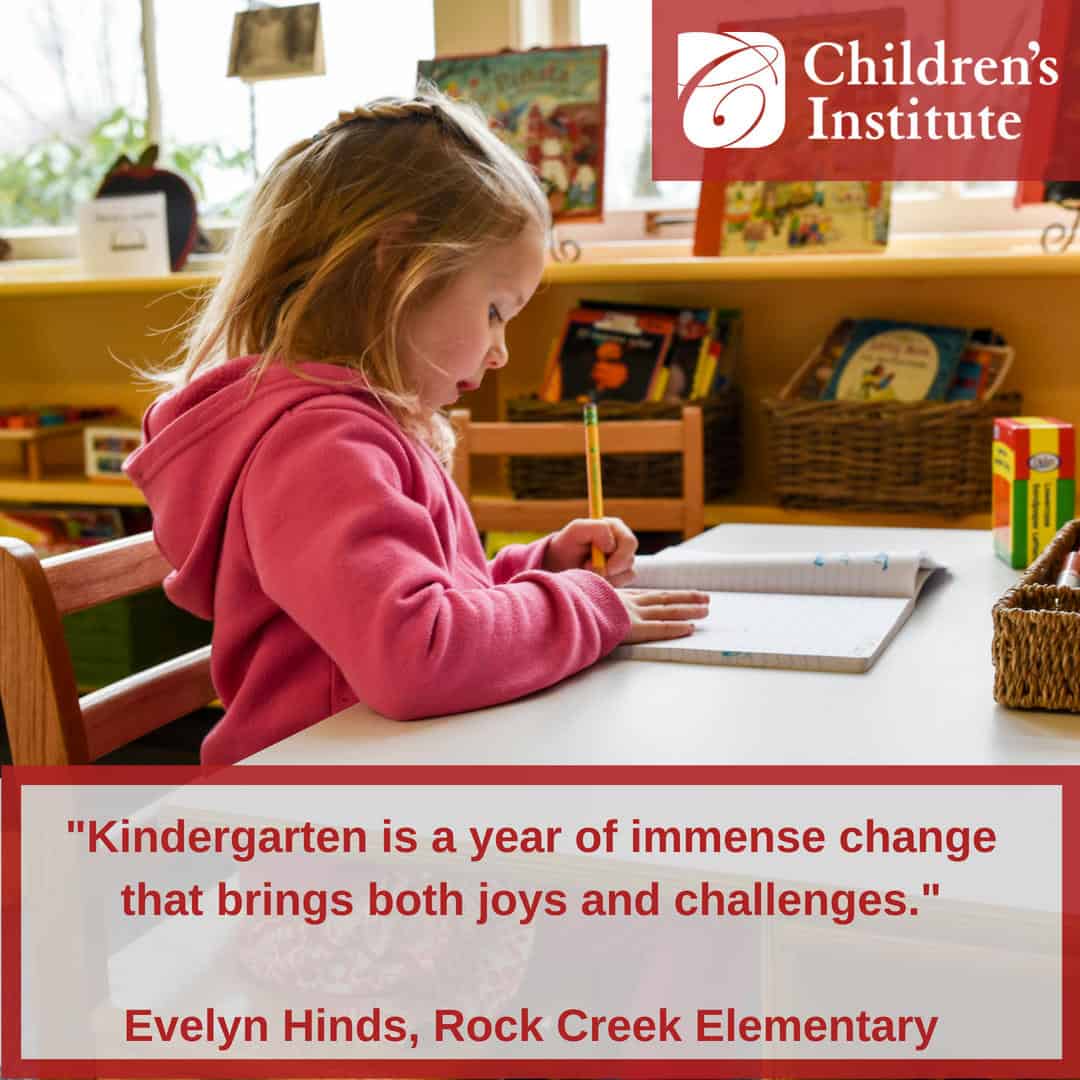
This summer Children’s Institute is highlighting the important work of early childhood educators teaching preschool through third grade. In this series of profiles, teachers from across the state tell us why they teach young children, what they wish people knew about their work, and what they’ve learned in their jobs.
Evelyn Hinds Explains Why Kindergarten is Such an Important Year for Kids
Evelyn Hinds is a kindergarten teacher at Rock Creek Elementary School in the Beaverton School District. Rock Creek, a K–5 school of nearly 600 students, serves a diverse population, with 31 different home languages spoken at the school. In this interview, Evelyn explains why kindergarten is such an important year for children, and how positive, supportive relationships lay the foundations for students’ future success.
Why do you teach kindergarten?
I truly love teaching kindergarten because of the amazing opportunities for growth that 5- and 6-year-old children experience during this pivotal year. Across all domains—socially, emotionally, cognitively, and physically—kindergarten is a year of immense change that brings both joys and challenges. It is also a year of transition as children typically enter a new phase of their schooling, bringing the opportunity to establish a multitude of positive associations with learning, peers, teachers, and the school community as a whole. I am passionate about doing all I can to provide my kindergartners with a supportive environment that will enhance their growth through this significant period of development. I am dedicated to supporting children and their families during kindergarten in a way that sets them up for success in education and in life.

What is one thing about your job you wish people knew?
I wish people understood on a deeper level what a great task I have been given in my job and that it is an incredible honor to partner with young learners and their families every day. When provided with supportive, enriching relationships and environments, young children thrive and display curiosity, empathy, and resourcefulness in ways that continually humble me. The skills and strategies that kindergarteners can learn allow them to grow as thinkers who look at the world and the people in it in ways that are respectful and demonstrate their desire to contribute to positive change. I wish more people realized the incredible opportunity we have to shape young minds and hearts during this crucial stage of development.
Can you describe a learning experience you’ve had that has impacted your teaching?
I am deeply grateful for a learning experience I had several years ago that has impacted my teaching in profound ways. After completing a graduate program in education, I had the opportunity to volunteer at an orphanage in the eastern African country of Tanzania. The young children who called the orphanage home were between infancy and five years of age and had all experienced great trauma in their young lives. What stood out to me during the couple months I was there was how the positive, nurturing relationships between the incredible staff and the children were changing lives in amazing ways. I was also impressed with how the aid that British organizations provided to the orphanage brought in resources that further supported the children in their growth and development. This powerful combination of positive relationships and critical resources were giving young children the foundation for unbelievable growth, completely reversing their prospects for the future. I believe this same truth applies to the students I teach as well.
